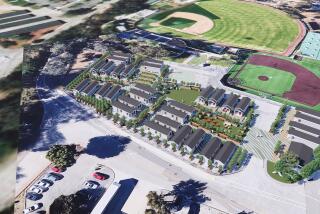Judge approves L.A. County deal for 3,000 mental health and substance use treatment beds
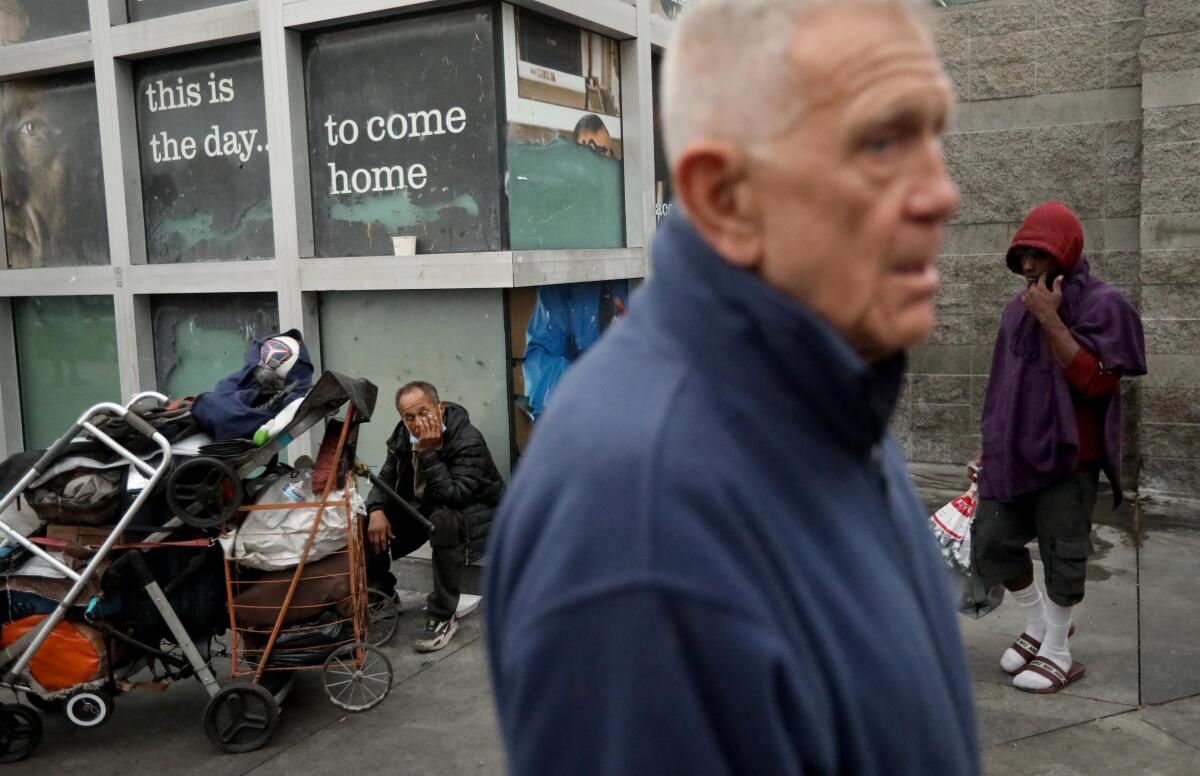
A federal judge signed off Thursday on Los Angeles Countyâs commitment to produce 3,000 new mental health and substance use treatment beds, settling a 3½-year lawsuit that alleged city and county officials had done little to address homelessness, while adding language to ensure the agreement was transparent and effectively monitored.
âThis is an extraordinary step forward,â U.S. District Judge David O. Carter said. âItâs going to save a lot of lives.â
Los Angeles Mayor Karen Bass, City Council President Paul Krekorian and Board of Supervisors Chair Janice Hahn, attending the hearing at Carterâs invitation, praised the agreement.
âWe are all now aligned,â Hahn told the judge. âThe stars are aligned with 3,000 beds. This is a solid proposal. We will make it happen.â
After twice rejecting proposed settlements between Los Angeles County and the L.A. Alliance for Human Rights, a group representing primarily downtown business and property owners, Carter ended the case in characteristically disruptive style, accepting the latest proposed settlement only after inserting his own wording and requiring the parties to accept or reject his additions, âyes or no.â
The earlier proposals had started at 300 beds and then been raised to 1,000.
Bass, who told the court 3,000 beds would make a significant difference, said after the hearing that the starting figure of 300 had shocked her and that adding a zero was the right solution.
The settlement âis a floor, not a ceiling,â Carter said, dictating his amendment to an aide who wrote it by hand on a copy of the agreement projected on a screen. While significant, it âdoes not solve homelessness,â he said.
Expressing displeasure at the lack of transparency he said he has observed in the distribution of funds for services, Carter inserted language requiring invoices for the services that would be rendered under the agreement to be made public.
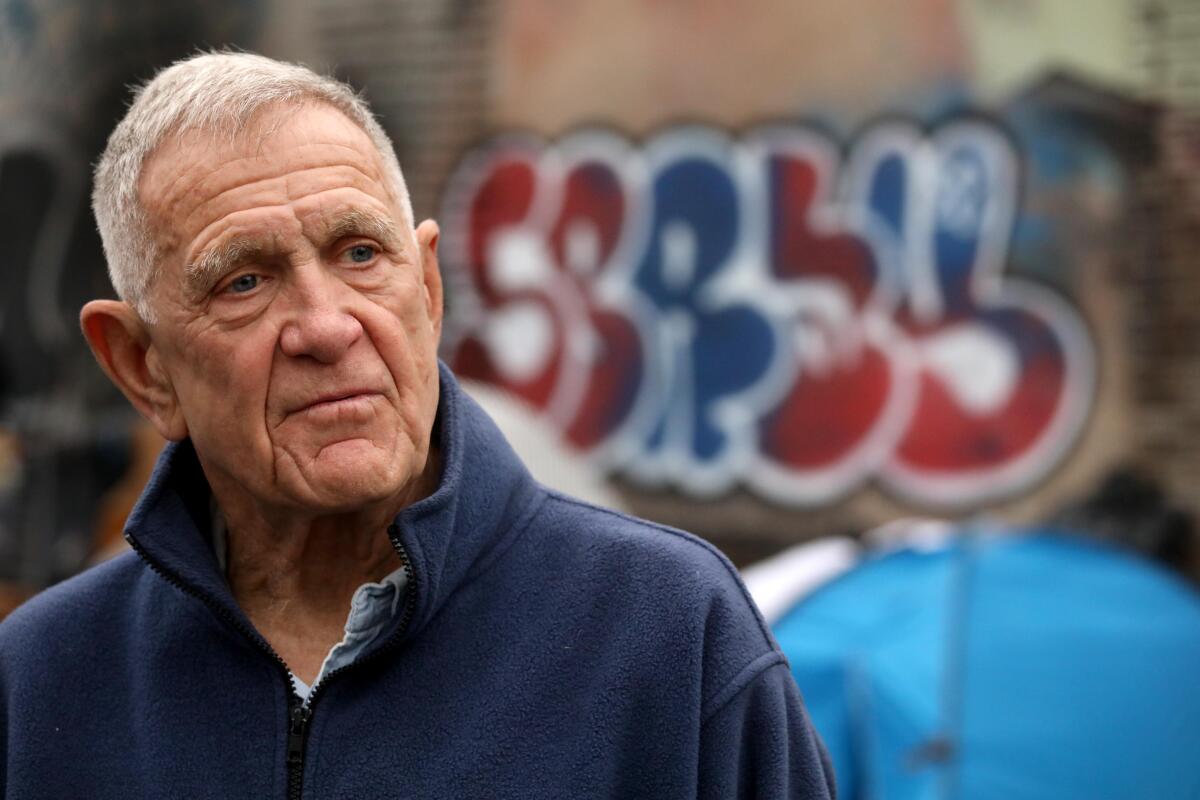
That added transparency was welcome, said plaintiffâs attorney Elizabeth Mitchell of Umhofer, Mitchell & King.
âItâs so difficult to hold the providers accountable, the county accountable when you donât have transparency,â she said. âI think overall weâre very happy with it.â
Carter said that in his visits to Skid Row service centers he has seen people leave waiting rooms after growing impatient, but suspects they were included in the agencyâs billings even though they received no services.
He said it was unlikely voters would approve new taxes â which would undoubtedly be required for the county to meet its obligations â if they were not confident the money was being spent efficiently.
The decision brings an end to a saga that has seen Carter alternately praise and berate public officials, hold court on the streets of Skid Row during the coronavirus pandemic, render a visionary ruling to end homelessness on Skid Row â only to have it overturned on appeal â and squeeze more and more money from a reluctant county.
The city had settled its side of the case in earlier agreements that committed it to produce close to 20,000 new beds of either interim or permanent housing.
Among his interjections Thursday, Carter raised multiple reservations about the nomination of retired Judge Jay C. Gandhi as a monitor to ensure compliance with the agreement. Though he called Gandhi a friend, Carter questioned his commitment to the case and the $200,000 annual fee proposed for him.
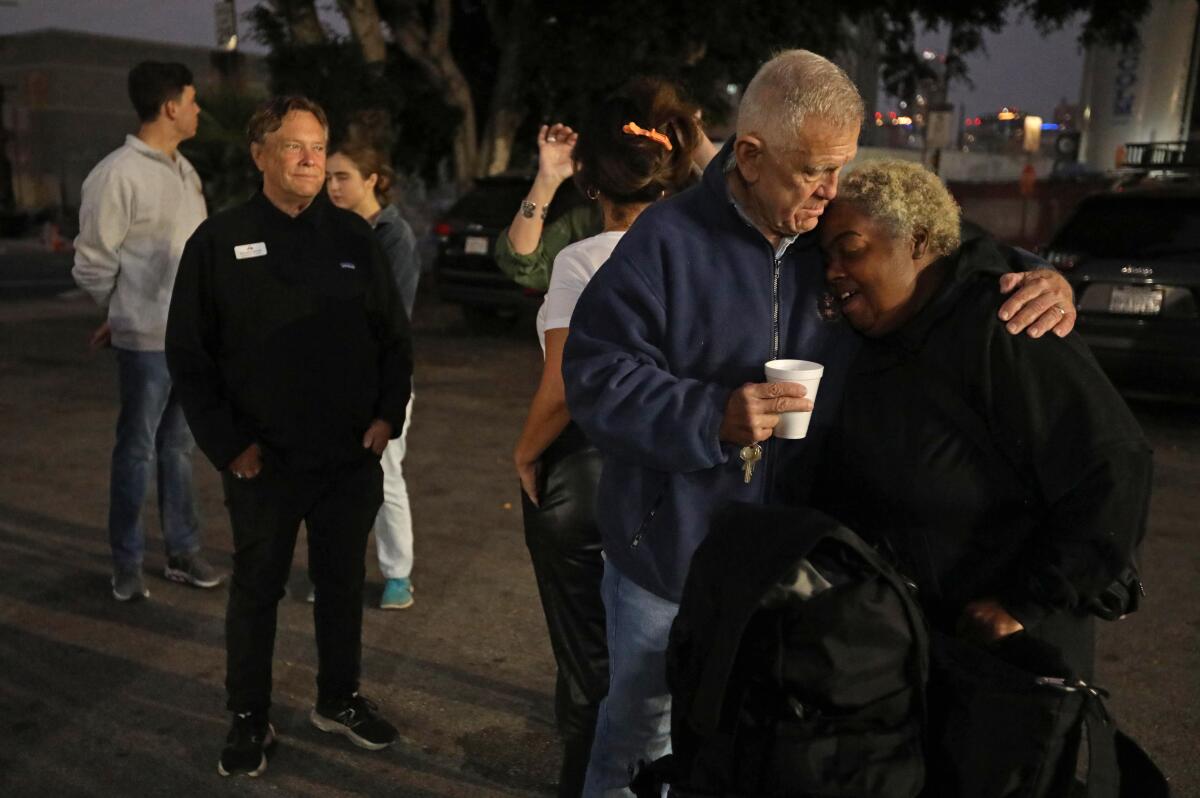
He instructed the aide to strike a paragraph that described Gandhi as âmaterial to brokering the Settlement Agreementâ and having âa meaningful background in the case.â
That statement, he said, was false. Gandhi had worked briefly on the case, he said, whereas special master Michele Martinez and another U.S. district judge, Andre Birotte Jr., had worked with the parties on the agreement some days until 2 a.m.
Carter also objected to the proposal to set Gandhiâs annual fee at $200,000 while Martinez would receive only $50,000. He characterized the differential as gender discrimination.
âHe can work for free or he can work for the same salary as Michele Martinez,â Carter said.
Hahn told the court that the supervisors had already approved the amount for Gandhiâs fee but that she thought the terms could be adjusted so the money would be equally divided between the two.
The handwritten addition published with the agreement Thursday afternoon read, âThe monitor must be willing to take to the streets, and learn from the community, not the bureaucracy, and has an absolute fiduciary duty to the court.â
In a closing gesture to impress on all parties his determination to ensure compliance, Carter announced that he would be on the streets of Skid Row at 6:30 a.m. Friday and advised Gandhi to be there too to show his passion for the job.
The case, filed in March of 2020, took several turns.
In May 2020, Carter ordered the city and county to find shelter for the thousands of people living near freeway overpasses, underpasses and ramps.
That decision was eventually vacated when the city and county agreed to construct new forms of shelter for 6,700 people within 18 months, and fund homeless services for the people who ended up staying in these locations after they were built.
In 2021, Carter granted a preliminary injunction sought by the plaintiffs telling the city and county to offer every homeless person on Skid Row housing or shelter within the year.
In a sharp rebuke to Carter, a three-judge panel of the U.S. 9th Circuit Court of Appeals ruled in overturning the decision that he failed to follow basic legal requirements, using ânovelâ legal theories that no one had argued, and ruled on claims that no one had alleged and on evidence that was not before him.
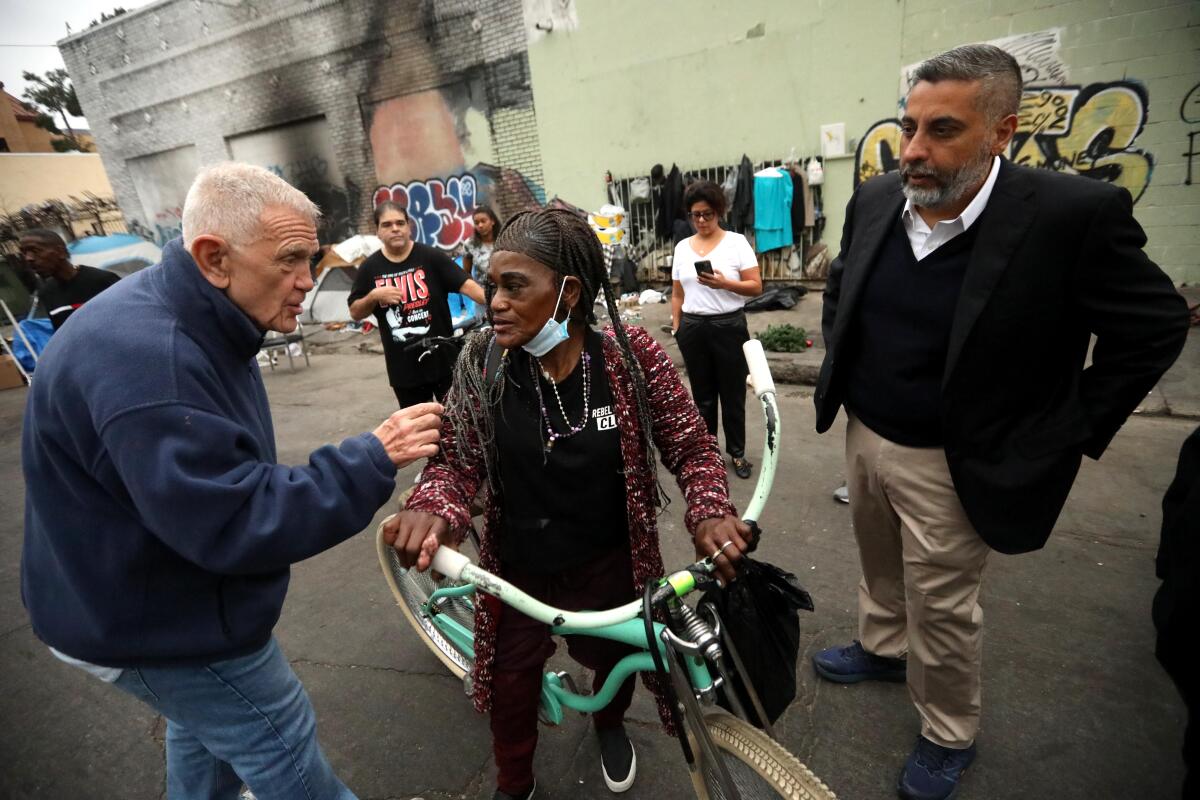
In April of 2022, the city reached its own settlement in which it agreed to open enough beds over the next five years to accommodate 60% of the cityâs unsheltered population in each City Council district.
The exact number of beds required, based on the results of the 2022 point-in-time homeless count, is estimated to be about 13,000 beds.
The county and L.A. Alliance for Human Rights continued negotiating and came up with an agreement late last year that provided 300 new mental health and substance use beds, and supportive services for city-financed interim and permanent housing. It also called for the expansion of mental health outreach by adding 11 new multidisciplinary teams, which include physical and mental health practitioners, bringing the total to 34 and nearly doubling its Homeless Outreach and Mobile Engagement Teams, which focus on severe mental illness, to 10. It did not include continuing oversight by a court monitor.
Pushed by Carter to do better, the parties came back in April with the 1,000-bed commitment and an agreement by the county to fund 450 new subsidies for beds at board and care homes âfrequently utilized by individuals with serious mental illness who are at risk of homelessnessâ â only to have the judge reject it again.
A county petition to the 9th Circuit for an order for Carter to accept that agreement was denied, leading to the prospect of a trial neither side wanted. To forestall it, they returned Monday with the terms the judge wanted.
Times researcher Scott Wilson contributed to this report.
More to Read
Sign up for Essential California
The most important California stories and recommendations in your inbox every morning.
You may occasionally receive promotional content from the Los Angeles Times.

